
May 22, 2025
How to Use AI for International Agricultural Product Sourcing
Learn how to use AI to streamline international agricultural sourcing. Discover tools, strategies, and benefits for smarter, faster global procurement.
March 12, 2025
Processed cashew is a significant commodity in the global nut market. This article explores the leading cashew exporting countries, the factors influencing cashew pricing, and the overall market dynamics, including the cashew value chain and global cashew demand. Understanding these aspects is crucial for analyzing cashew market trends and forecasting future developments in the cashew nut industry.
Several countries dominate the processed cashew market. These nations have established robust agricultural practices and processing infrastructure to meet the increasing global demand. Identifying these leaders helps understand the cashew supply chain and the availability of cashew nut kernels in the cashew kernel market.
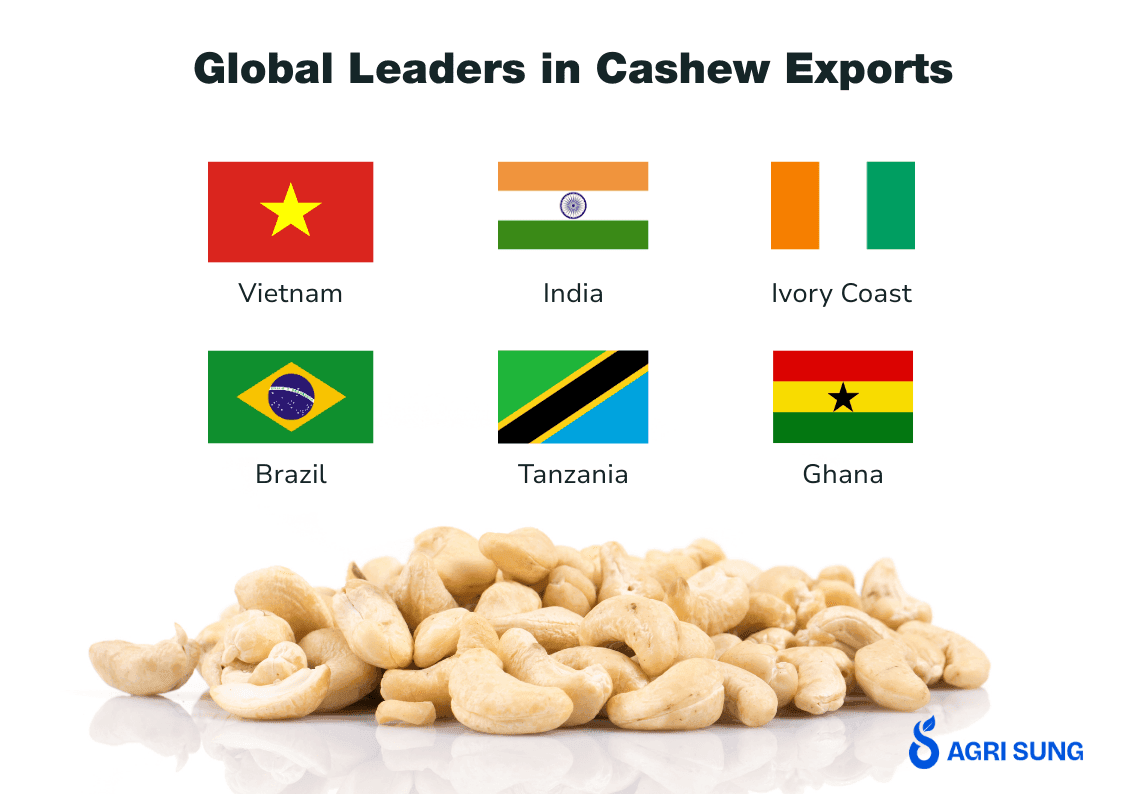
Vietnam consistently ranks as the top exporter of cashews globally. Their advanced processing techniques, high production volume, and significant cashew processing capacity give them a considerable market advantage. Export data shows Vietnam's dominance in the cashew trade, with Vietnam cashew exports contributing significantly to the country's cashew export revenue.

India is a major player in cashew production and processing. While a significant portion of their cashews is consumed domestically, they remain a key exporter, contributing substantially to the global supply of cashew nut kernels. The India cashew trade plays a crucial role in both Asian cashew production and the global cashew market.

This West African nation has rapidly increased its cashew production and is becoming a prominent exporter of raw cashew nuts and processed cashews. Ivory Coast cashew exports have grown significantly, contributing to the rise of African cashew production. West Africa, as a region, is gaining importance in the cashew nut industry.

Brazil, with its favorable climate and agricultural expertise, is another significant cashew producer and exporter. Their cashew cultivation techniques have been refined over years of experience, making them a key player in global cashew production.

Tanzania is an emerging player in the cashew market, focusing on improving its processing capabilities and increasing its export volume of shelled cashews.

Ghana is also emerging as a notable cashew exporter from West Africa, diversifying the region's contribution to the global cashew market and enhancing African cashew production.

Cashew production statistics indicate that these countries collectively account for a significant portion of the global cashew supply. Their export data provides valuable insights into cashew market analysis and trade flows, including cashew import-export dynamics.
The cashew nut price is influenced by various factors, ranging from agricultural conditions to global economic trends. Understanding these factors is crucial for businesses and consumers alike in the cashew nut industry.
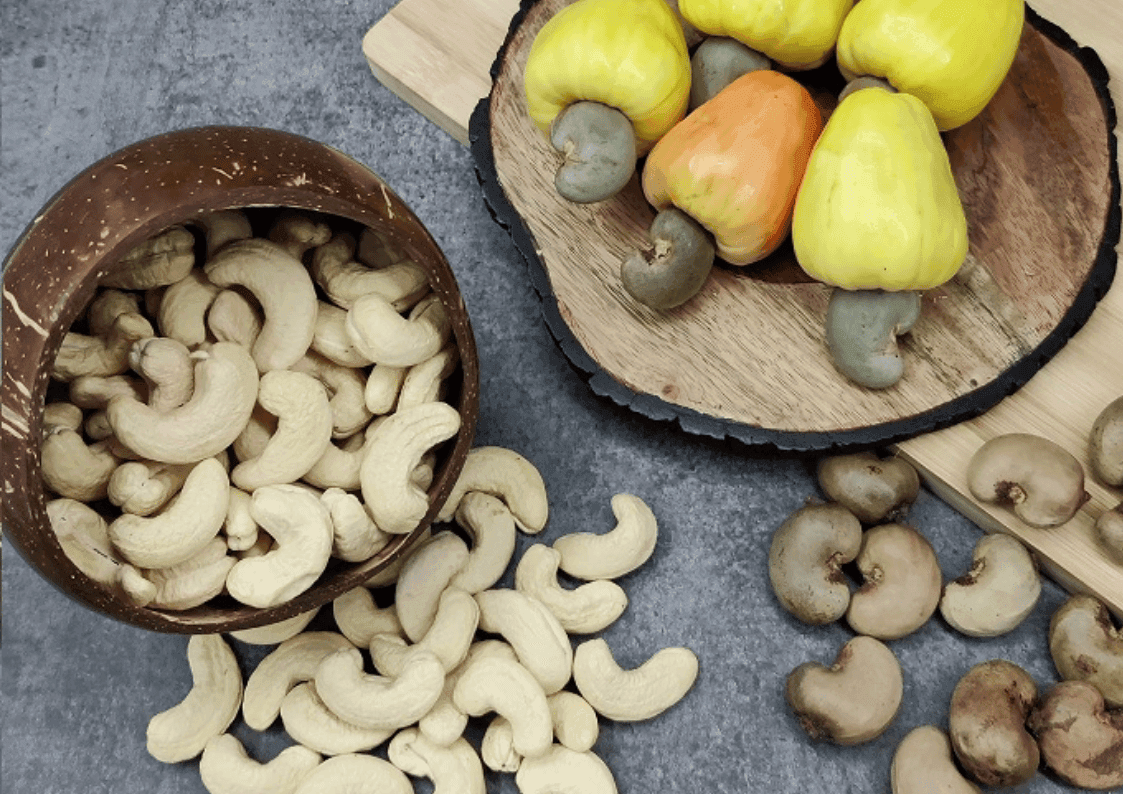
The supply and price of raw cashew nuts directly impact the cost of processed cashew nuts. Factors like weather conditions, crop yields, disease outbreaks, and seasonal forecasts can affect raw material availability. The cashew harvest season plays a crucial role in determining supply levels and, consequently, cashew unit prices.
The cost of processing cashews, including labor, energy, equipment maintenance, and working capital requirements, plays a significant role in determining the final price. Countries with efficient processing methods and advanced cashew processing technology often have a competitive advantage in the cashew value chain.
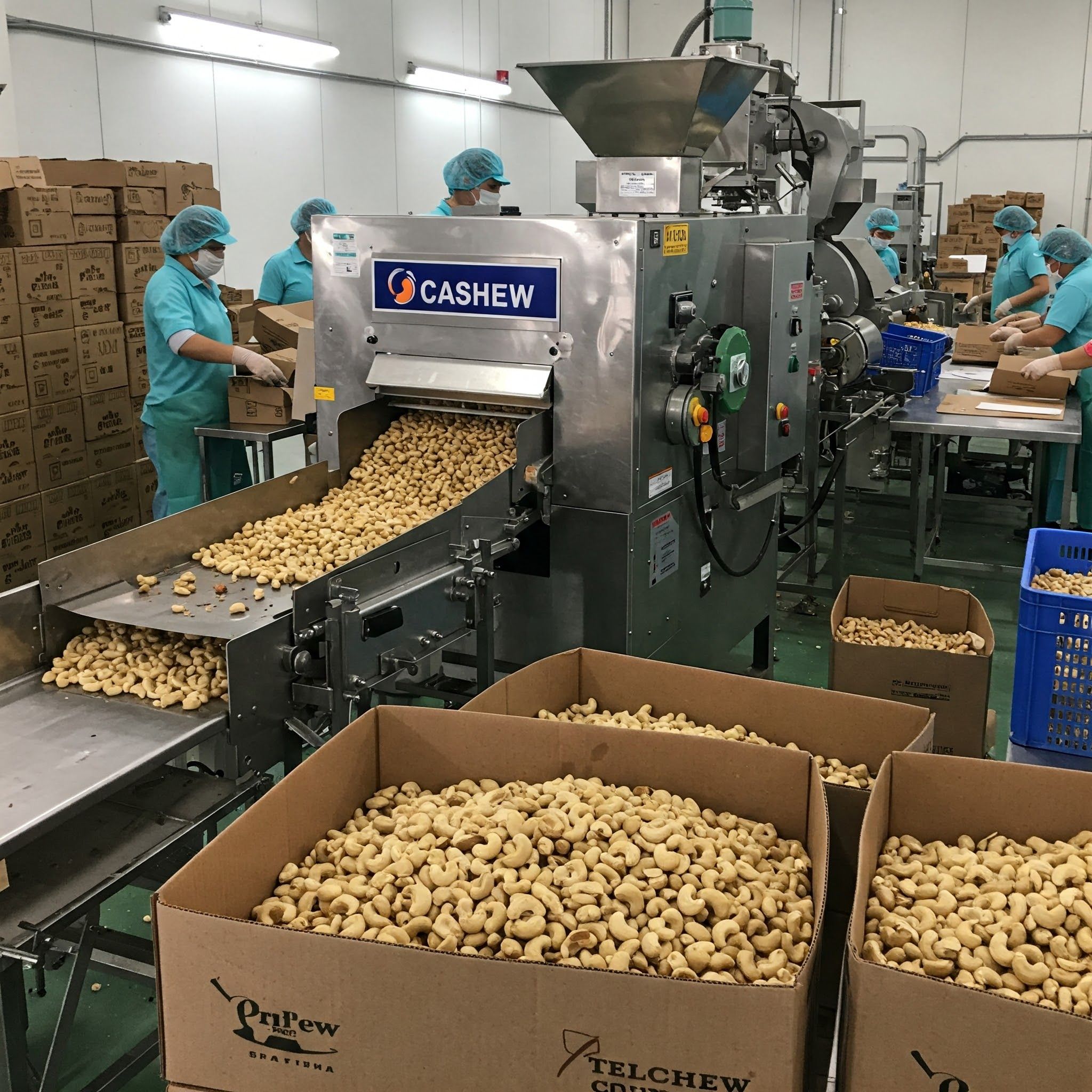
Increasing global cashew demand, driven by nutritional benefits and culinary versatility, can push prices upward. Market trends, consumer preferences, and import dynamics also influence demand. Cashew consumption trends vary across different cashew market segments, with growing interest in cashew snacks and cashew ingredients for various food products.
Fluctuations in currency exchange rates can affect cashew pricing, particularly for international trade and export revenue calculations. This factor significantly impacts cashew trade value and cashew import expenditures for importing countries.
Cashew import tariffs, cashew export regulations, and cashew trade agreements can impact the cost of importing processed cashews, affecting the final price for consumers and influencing price fluctuations in the cashew kernel market.
Adherence to cashew quality standards and certification requirements can affect processing costs and, consequently, the final product price. This is particularly important for shelled cashews and cashew nut kernels destined for international markets.
The cashew market is continuously evolving, with new cashew industry trends and challenges emerging. Understanding these trends is essential for stakeholders to make informed decisions and capitalize on cashew market opportunities.
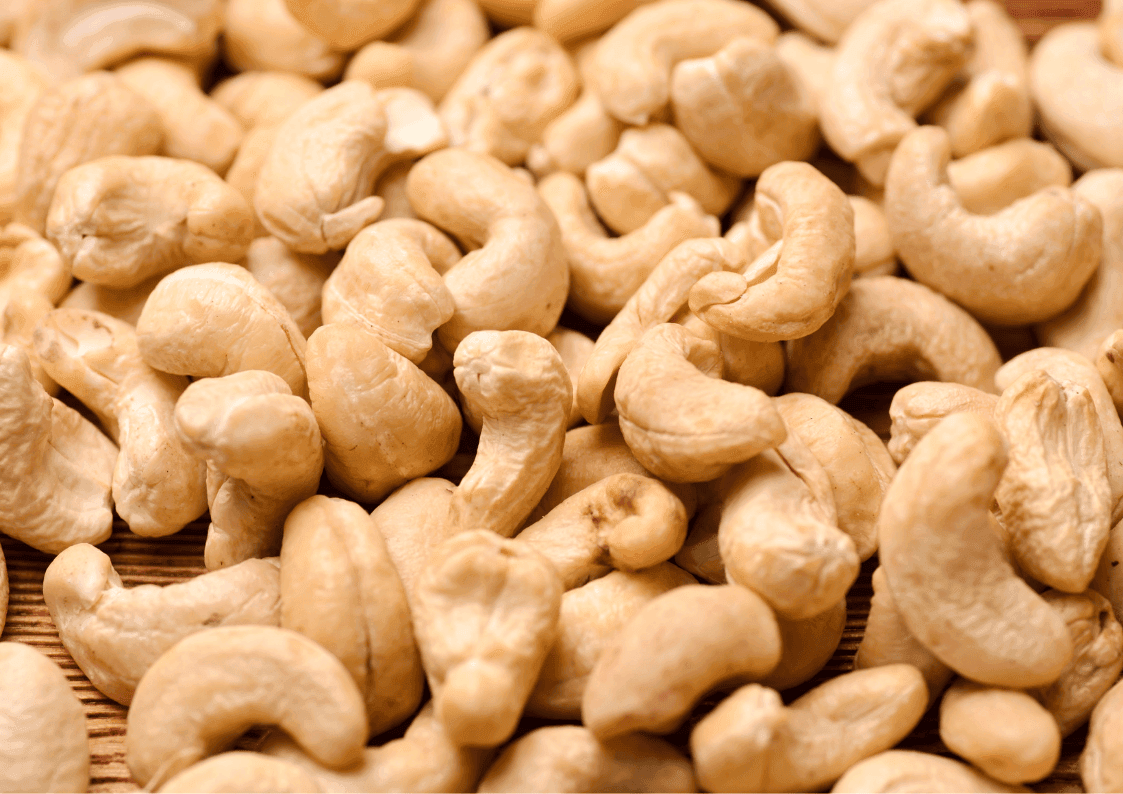
There's a growing demand for organic and sustainably sourced cashews, reflecting consumer preferences for healthier and more ethical products. This trend is driving the adoption of cashew sustainability practices across the industry, from cashew tree cultivation to processing.
The market is witnessing an expansion of cashew by-products, including cashew butter, cashew milk, cashew oil, and cashew cheese alternatives, catering to vegan and lactose-intolerant consumers. This diversification is opening up new cashew market segments and influencing cashew consumption trends.
Cashew-producing countries are increasingly focusing on value addition by investing in processing facilities to export processed cashews instead of in-shell cashews, boosting their economies. This trend is reshaping export destinations and import markets, with implications for cashew importing countries.
Improvements in cashew processing technology and mechanization are enhancing efficiency and quality control in the industry. These advancements are particularly important for maintaining consistent kernel outturn ratios and improving overall cashew processing capacity.
The industry is exploring innovative cashew packaging solutions that are both environmentally friendly and effective in preserving product quality during transportation and storage. This trend aligns with broader sustainability initiatives in the cashew value chain.
The processed cashew market is dynamic, with top exporting countries playing a crucial role in meeting global demand. Understanding the factors influencing cashew pricing, staying abreast of market trends, and analyzing cashew market forecasts are essential for navigating this evolving landscape.
As the cashew nut industry continues to grow, factors such as cashew processing costs, export regulations, and sustainability practices will play increasingly important roles. Stakeholders should keep a close eye on cashew market analysis, export data, and global supply trends to make informed decisions in this competitive market.
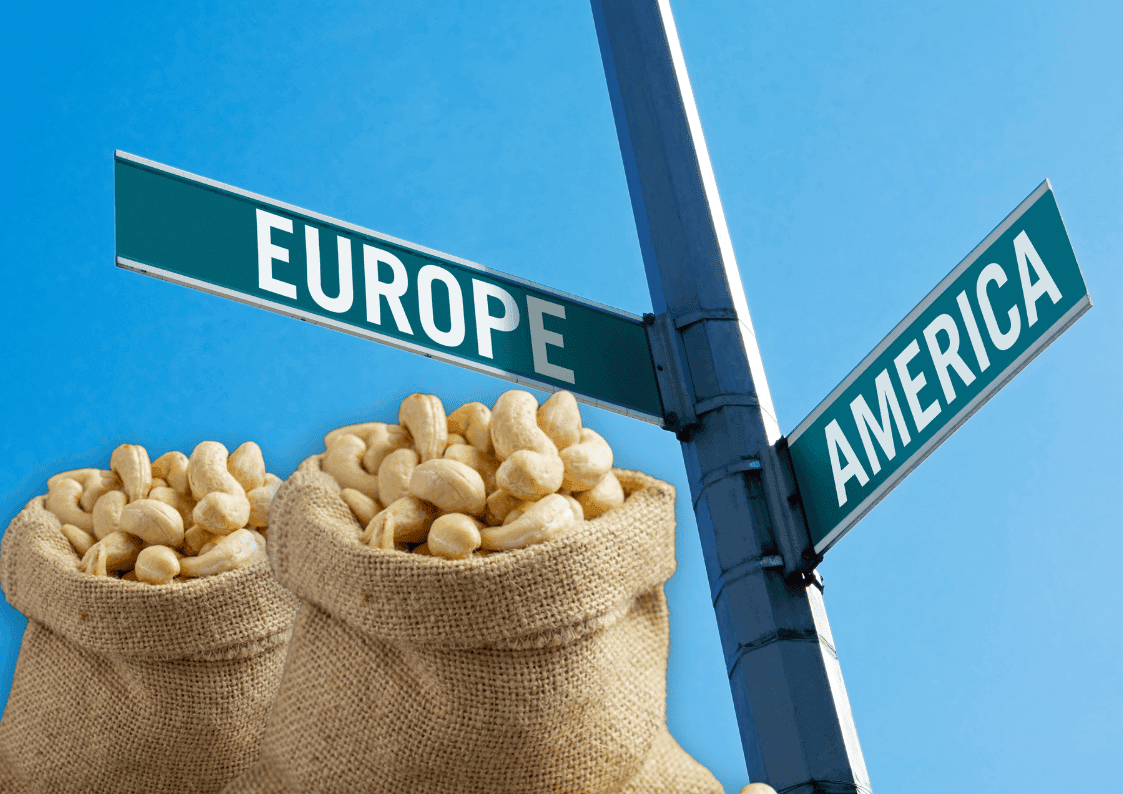
The future of the cashew market looks promising, with growing demand from both traditional and emerging markets. European cashew imports and North American cashew imports continue to drive significant demand, while Asian markets show potential for further growth. As the industry evolves, it will be crucial to balance production capacity with sustainable practices to ensure long-term viability and meet changing consumer preferences in various cashew market segments.
Q: Are cashews processed food?
A: Yes, cashews undergo several processing steps to remove the toxic shell and make them safe and palatable for consumption. This processing is an essential part of the cashew value chain.
Q: Are cashew nuts ultra-processed?
A: Cashews are generally not considered ultra-processed, as the processing mainly involves cleaning, shelling, roasting, and packaging. The process transforms raw, in-shell cashews into edible shelled cashews or cashew nut kernels.
Q: Are unprocessed cashews poisonous?
A: Yes, raw cashew nuts in their shells contain urushiol, a toxic oil that can cause skin irritation and allergic reactions. Therefore, they must be processed before consumption. This is why the cashew processing industry is crucial for making cashews safe for consumption.
Q: How is cashew processed?
A: Cashew processing involves several steps, including cleaning, shelling (often using roasting or steaming), peeling, grading, and roasting. Quality control measures are implemented throughout the process to ensure adherence to cashew quality standards. Some processors also extract cashew shell liquid, which has industrial applications.
Q: Is cashew processing profitable?
A: Cashew processing can be profitable, but profitability depends on factors such as the cost of raw materials, processing efficiency, and market demand. Understanding cashew pricing trends and managing processing costs effectively are crucial for profitability assessments in the cashew nut industry.
Q: What affects the cashew nut price?
A: Raw material costs, processing costs, global cashew demand, currency exchange rates, trade policies, and quality standards all play significant roles in determining cashew pricing. Seasonal forecasts, cashew harvest yields, and price fluctuations also impact the market dynamics. Additionally, the balance between cashew import expenditures and export revenues influences overall market prices.

May 22, 2025
Learn how to use AI to streamline international agricultural sourcing. Discover tools, strategies, and benefits for smarter, faster global procurement.

May 22, 2025
Discover how AI tools revolutionize agricultural sales and trading. Explore top AI assistants, chatbots, pipeline automation, and smart negotiation tools.

May 21, 2025
Discover the top 5 AI tools for automating sales pipelines in trading. Boost lead conversion, streamline deal flow, and improve forecasting with AI-powered sales systems.